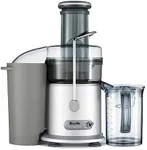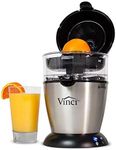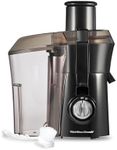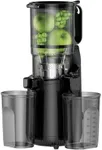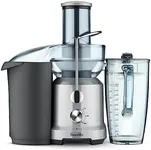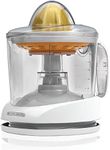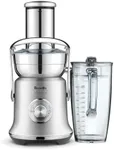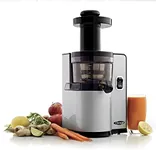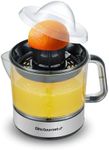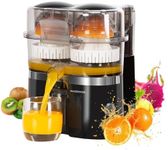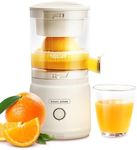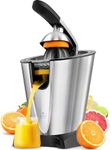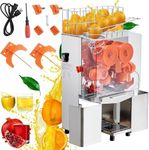Buying Guide for the Best Home Juicers
Choosing the right home juicer can significantly enhance your kitchen experience and help you maintain a healthy lifestyle. When selecting a juicer, it's important to consider various factors that will affect the quality of juice, ease of use, and overall satisfaction. Here are some key specifications to consider when picking the best juicer for your needs.Type of JuicerThere are mainly three types of juicers: centrifugal, masticating (slow), and citrus juicers. Centrifugal juicers are fast and efficient, making them great for quick juicing of fruits and vegetables. Masticating juicers operate at a slower speed, preserving more nutrients and yielding higher juice quality, ideal for leafy greens and those who prioritize nutrition. Citrus juicers are specifically designed for extracting juice from citrus fruits like oranges and lemons. Choose based on the types of produce you plan to juice and your nutritional priorities.
Juice YieldJuice yield refers to the amount of juice extracted from a given amount of produce. Higher yield means more juice and less waste. Masticating juicers generally offer higher yields compared to centrifugal juicers. If you want to maximize the amount of juice you get from your fruits and vegetables, look for a juicer known for its high yield.
Ease of CleaningCleaning a juicer can be a tedious task, so it's important to consider how easy it is to clean. Juicers with fewer parts and dishwasher-safe components are generally easier to clean. If you plan to use your juicer frequently, ease of cleaning should be a top priority to ensure you don't get discouraged from using it regularly.
Noise LevelJuicers can be noisy, especially centrifugal models. If you prefer a quieter operation, masticating juicers are typically quieter due to their slower speed. Consider the noise level if you have a sensitive household or plan to juice early in the morning or late at night.
Size and StorageJuicers come in various sizes, and it's important to consider the space you have available in your kitchen. Larger juicers may offer more features but can take up more counter space. If you have limited space, look for a compact model that can be easily stored when not in use.
Durability and Build QualityA well-built juicer made from high-quality materials will last longer and perform better over time. Stainless steel components are generally more durable than plastic ones. Consider the build quality and read reviews to ensure you're investing in a reliable product.
Speed SettingsSome juicers come with multiple speed settings, allowing you to adjust the speed based on the type of produce you're juicing. Softer fruits may require a lower speed, while harder vegetables may need a higher speed. Having multiple speed options can provide more versatility and better juice extraction.
Pulp EjectionPulp ejection refers to how the juicer handles the leftover pulp. Some juicers have an external pulp ejection system, which allows for continuous juicing without stopping to remove the pulp. This feature is particularly useful if you plan to juice large quantities at once.
WarrantyA good warranty can provide peace of mind and protect your investment. Look for juicers that come with a warranty, as it indicates the manufacturer's confidence in their product. Longer warranties are generally better, as they offer more extended protection.
